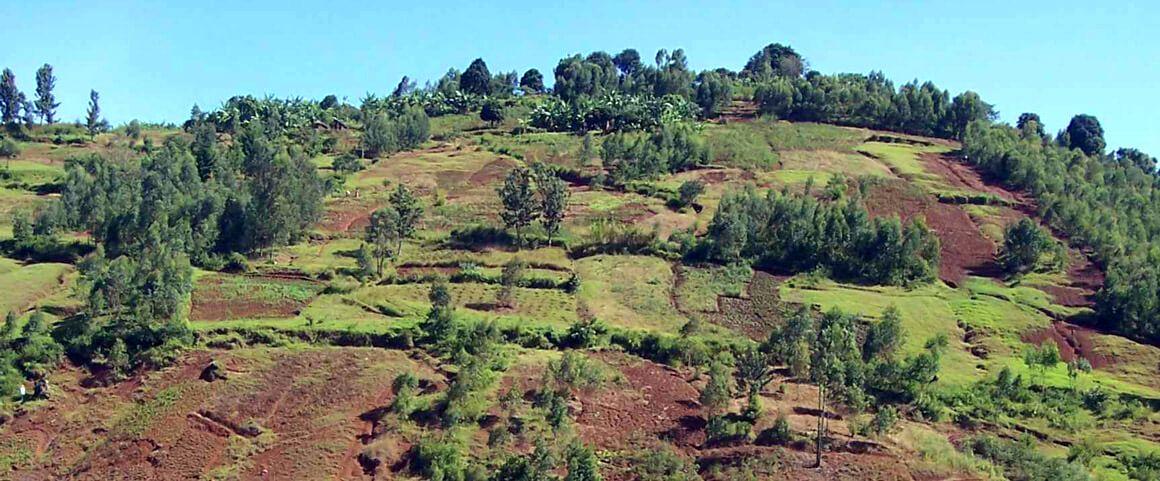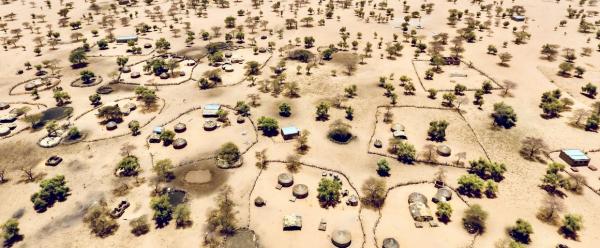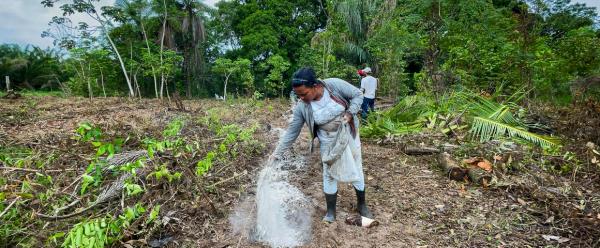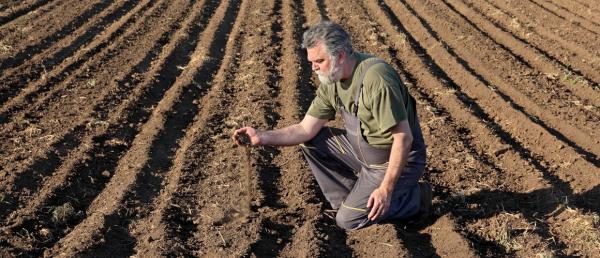Expert view 25 April 2024
- Home
- CIRAD news
- News
- Ways of slowing imported deforestation
Imported deforestation: how Europe contributes to tree loss worldwide, and what we can do about it

The Kivu Hills in eastern Democratic Republic of Congo © Alain Karsenty, CIRAD
Forest area is increasing in Europe, mainly because farms are getting fewer and smaller. This should be good news, but it must be put into perspective alongside the loss of forest that the EU’s growing agricultural imports cause in third countries. We call this “imported deforestation”.
The European Union is the world’s main trader in agricultural products with imports totalling €142 billion in 2020. These imports include commodities such as palm oil, beef, cocoa, coffee and soya which are responsible for deforestation in the countries that produce them.
The EU case is not unique. At the global level, tropical areas are losing forests at a rate of 10 million hectares per year according to the FAO’s latest report on forest resources, and temperate areas, which are gaining forest area at a rate of 5 million hectares per year.
Of the 10 million hectares of forest lost each year, just under two-thirds can be unambiguously attributed to agricultural expansion, with the remaining third being a combination of forest fires, logging and other factors. About one-third of the forest area lost is linked to international trade. By fighting against imported deforestation, it is therefore possible to make a significant difference in total tree loss worldwide.
Acknowledging its role in imported deforestation, the EU is currently stepping up to reduce the impacts of its imports. After the European Parliament adopted a report on the issue, the EU is heading toward a mix of mandatory and voluntary rules to tackle the problem. Meanwhile, some EU countries, like France, have already set up national strategies to combat imported deforestation.
How to fight imported deforestation
Preventing imported deforestation means knowing how to quantify the phenomenon and monitor it. For example, tropical wood from Africa can pass through China where it is processed before being imported into Europe. This means we need complex traceability chains to track the origin of imported wood with the support of customs services and private companies.
Then there is the question of timing. Should Ivory Coast cocoa from farms that replaced forests destroyed in the 2000s still be counted as a liability for imported deforestation? We need to set a cut-off date after which products imported from an area can be disconnected from deforestation.
It is also necessary to take forest degradation into account. This is the reduction of a forest’s capacity to provide goods and services, which is reflected in a reduction in tree density. Countries define forest degradation by setting their own tree cover thresholds, which results in several hundred definitions.
For imported deforestation, the choice of this threshold is critical. If it is low, heavy degradation can occur without this transformation being qualified as deforestation. If it is high, the conversion of vegetation that has all the ecological characteristics of forests into agricultural land might not technically be considered deforestation.
Many sustainable production activities, such as selective logging, lead to forest degradation. But with good forest management, this degradation is limited and reversible.
The same principle applies to certain forms of agroforestry (such as cultivating cocoa under forest shade) or the collection of firewood in dry forests. The challenge, then, is not to avoid all degradation, but to control the factors that cause it in order to keep it within sustainable limits.
These different issues, which at first glance seem technical, refer to political choices that are the responsibility of policy and the law.
Zero deforestation certificates
We believe it is necessary to distinguish between illegal and legal deforestation, building on the EU timber regulation which bans the import of all illegally harvested timber.
Differentiating between legal and illegal is politically more feasible than boycotting agricultural production associated with deforestation that is legal in the producing country but deemed environmentally problematic by the EU.
If legal agricultural production is banned, the EU would risk exposing itself to trade retaliation, not to mention complaints to the World Trade Organisation about trade discrimination.
Ideally, producing and importing countries should agree on common definitions of forest and on cut-off dates. But this will be a long and difficult process.
It seems more realistic to ban the import of agricultural products from illegal deforestation and to modulate tariffs according to the information and guarantees that importers provide to ensure their production can be certified as “zero deforestation”. These certifications would be accredited by the public authorities and would be subject to a continuous evaluation process.
Switzerland has just paved the way for this via an agreement with Indonesia that lowers tariffs by 20% and then 40% for certified palm oil across three approved standards.
A fair measure for small producers
In all cases, it will be necessary for importers to comply with the legal requirement for due diligence to ensure that an imported product is not associated with illegal land conversion.
If there is insufficient information regarding the status of the product and the import goes ahead, the importer will not only have to fulfil its due diligence obligation, but will also have to demonstrate that its product is zero deforestation in order to benefit from a favourable customs tariff.
If the due diligence suggests a high risk of illegality, then the responsible importer will not market the shipment. If due diligence is successful and no risk of illegality is found, but the product is not certified as zero deforestation, a higher tariff is applied. If the due diligence is successful and the product is certified as zero deforestation, then it receives a favourable tariff.
Currently, many products such as soy or cocoa have tariffs of 0%. Differentiating between zero-deforestation products and others will require an increase in some of these tariffs.
The additional revenue from this could be used to fund programmes to help small-scale producers in exporting countries move toward sustainable practices and become certified. Such an allocation would refute accusations of protectionism and provide a good faith basis for defending this measure at the World Trade Organization.
As with all ecological taxation, the aim of a zero deforestation certification scheme would be for the yield of the import tax to decrease over time. Ideally, Europe would eventually only import certified zero deforestation products, redressing the global imbalance between the parts of the world that are gaining forests and those that are losing them.
Nicolas Picard, Director of GIP ECOFOR and forest science researcher at INRAE was co-author of the article.


























